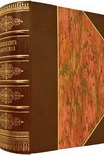A Fine Madness by Alan Judd (free novel 24 .TXT) 📗

- Author: Alan Judd
Book online «A Fine Madness by Alan Judd (free novel 24 .TXT) 📗». Author Alan Judd
‘I’m not unhappy. But I worry for your sake.’ That was only half true. Such thoughts, rarely expressed and as dangerous then as now, unsettled me. They watered seeds of doubt planted deep in my soul. Some men have the gift of faith, believing with a serenity that is proof against doubt. Mr Secretary was one. I am not.
I hope this does not shock you, sir, and I hope His Majesty will not think worse of me if you report it. I confess freely now because at my age I am close enough to the answers to these questions not to worry what men think of me. Either I shall find that religion is true and that Christopher and all doubters were wrong, or I shall know nothing. I shall be as I was before I was born and never know that the doubters were right. There is nothing to fear from that. But I tell you this so that you understand that he thought these thoughts himself from early days, long before the stories of free-thinking that surrounded him at his death. I ask again, could that be the reason for His Majesty’s interest in him?
If so, His Majesty will wish to know that both before and after his death Christopher was accused of scoffing at religion and of being part of Sir Walter Ralegh’s School of Night. That was a supposed cabal of free-thinkers, though I don’t believe Ralegh ever organised anything as formal. Whether Christopher was part of it, I do not know. Robert Greene, a player and writer not known for his kindly opinions of others, wrote in his death-bed repentance of what he called Christopher’s diabolical atheism, saying, ‘he hath said… like the fool in his heart: There is no God.’ Also another play-maker, Thomas Kyd, who had sometime shared rooms with Christopher and who was later arrested for the Dutch Church libel which I investigated, claimed that Christopher had ‘monstrous opinions’. He said that he scoffed and jested at scripture, called St Paul a juggler and accused Christ of unnatural love for St John. Among papers found in Kyd’s room were some that questioned the truths of divine scripture. He said they were Christopher’s and must have been mixed with his when they shared a room. But he was being racked when he said these things, pleading for his life. He was being racked for the Dutch Church libel, of which he was innocent, poor man. He was released after racking, I am glad to say.
Maybe Christopher did speak in that way with his friends. He never did with me. Whether it was from gentleness, sensing that my faith was fragile, or whether he thought I might report him, I know not. He would tease, certainly, but I never knew him mocking or cruel as others said he could be. Yet he did more to bring me to my current state than any amount of mockery, jibing or abuse could have done. He never sought to persuade me, he only ever questioned. And his questions remain.
Where did he get these ideas? The Ancients, perhaps, maybe even the Book of Job, but mostly I suspect from within himself. He was well versed in scripture, better than many clergy. He studied deeply, but other men have studied without being led to doubt. May God forgive him, wherever he be now, though I truly believe that what led him into doubt was honesty, honesty of the mind. Not malice or vanity or ignorance or passion. He said to me once that we have a duty to Reason because we have a duty to be honest.
We were near his lodging when we had the exchange I have just related. ‘Come in,’ he said. ‘It is warm enough to sit in the garden and talk of lighter things. If Widow Turner favours you she may bring us cider.’ He smiled. ‘That may be a sign.’
We did drink cider in the garden that morning and Mary Turner was most welcoming. She sent a girl to attend to us and then joined us for a while, albeit mostly addressing Christopher. However, when she stood to leave us, saying we must have theatre business to discuss, she smiled at me. This encouraged me to linger briefly after Christopher left for the playhouse. She asked me about the theatre, assuming I was as much involved as her two lodgers, and it turned out she had never seen a play, fearing they were rough and unruly events. I offered to escort her one day but had then to confess that I was not a player or poet or play-maker myself. I told her I did write but in a private capacity for Sir Francis Walsingham and other gentlemen of the Court. I hoped that would impress her and returned to Whitehall with pleasing anticipation. It did something to distract me from the executions.
C
HAPTER
S
EVEN
At about this time Thomas Walsingham, Mr Secretary’s cousin, increasingly featured in our work. A trusted man who had done well in Paris, he now moved into Mr Secretary’s house in Seething Lane to be of more intimate assistance, especially when Mr Secretary was struck down by the stone. This was happening ever more frequently. There were periods when Sir Francis kept to his room for weeks at a time in pain and sickness, unable to attend Court. His secretary Francis Mylles kept him informed and he continued to give general directions but could not attend to the detail he loved.
Thomas, like Mr Secretary himself, was a generous patron of poetry and the arts and I cannot now say whether it was through that that he and Christopher came to know each other well or whether





Comments (0)